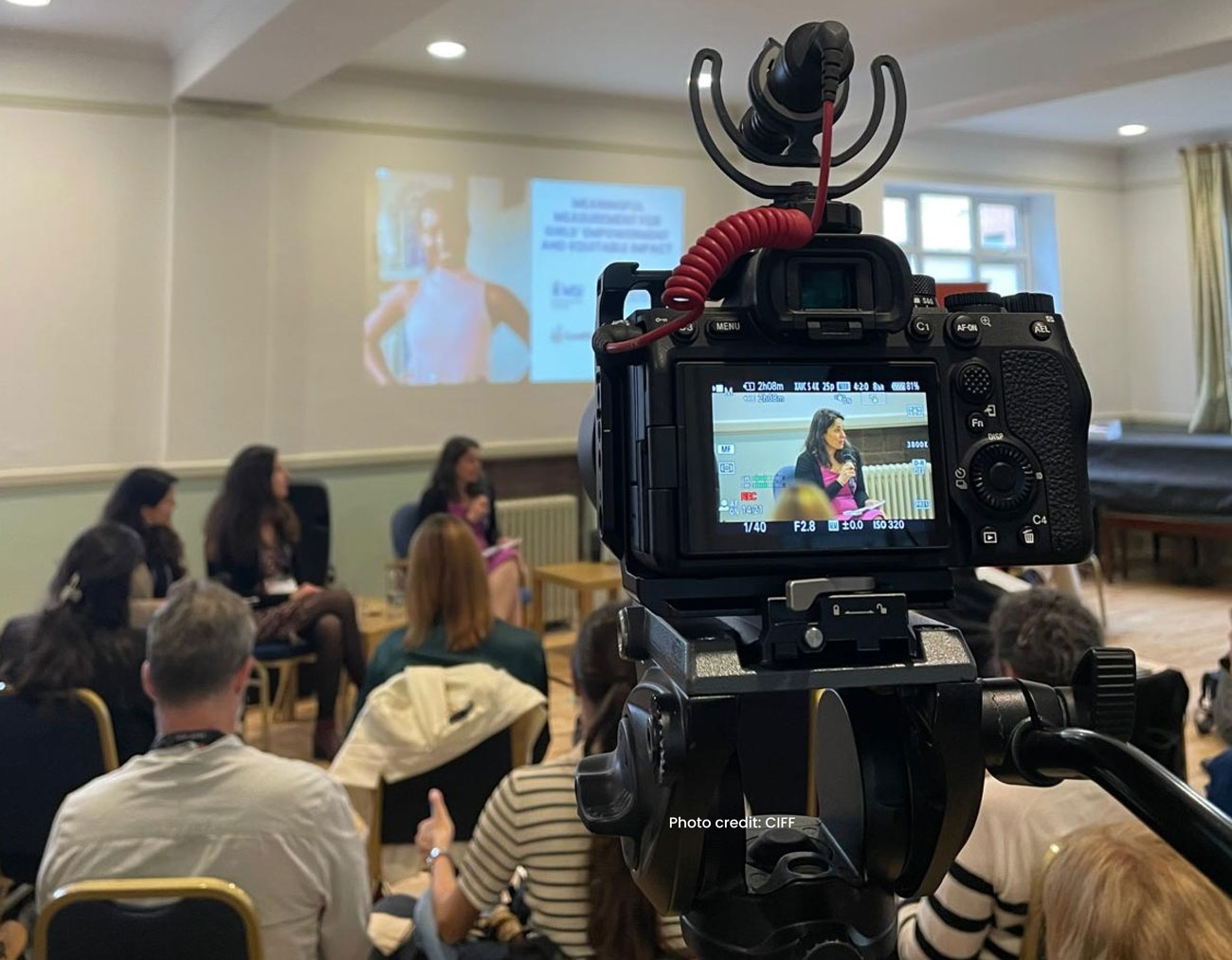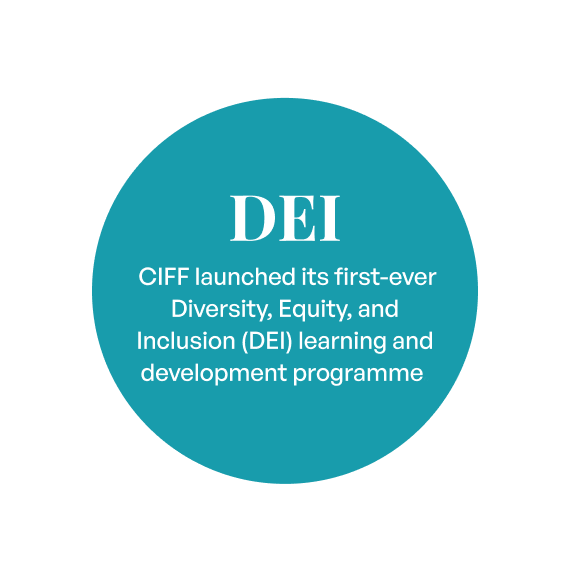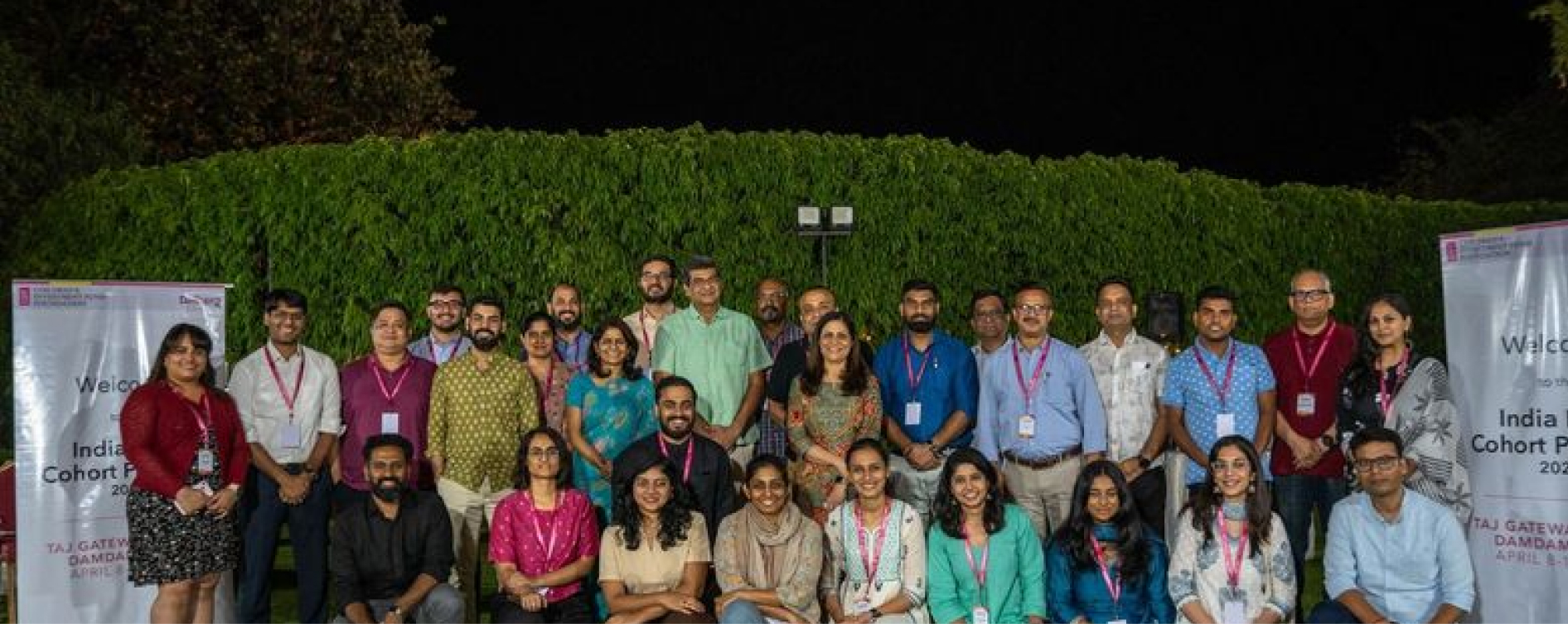
No single organisation or individual, regardless of resources, can create lasting change alone – we need to work collectively across different issues and geographies to achieve systemic change.
Cross-cutting work at CIFF refers to our grant-making that doesn't fall into a specific sectoral area but enables all our grant-making. It includes work that strengthens the operations and approaches of our grantees, as well as connects the dots between different areas of our portfolio and supports our partners in doing the same.
In 2024, CIFF strengthened our commitment to cross-cutting work through the Organisation and Ecosystem Development team and the Equity, Gender and Youth team.
Working as a center of excellence, this group of experts provides strategic guidance and support to CIFF staff and our partners. A key part of our cross-cutting work also involves our development finance portfolio – working to strengthen, enhance, and better use global financing mechanisms to support our collective development goals.
In 2024, CIFF launched an organisation-wide ecosystem development strategy, alongside intervention frameworks and tools to map and assess the maturity of civil society ecosystems. This toolkit has been adopted across our portfolio and is helping CIFF and its partners to collaborate with a range of different stakeholders to tackle complex challenges.
The ecosystem development strategy incorporates equity as a key component, building on the success of CIFF’s Equity Toolkit. In 2024 we shared lessons from our experience of embedding the toolkit and equity approaches with peer funders and implementers at forums like the UN Commission on the Status of Women, the Skoll World Forum, and within funder communities including Elevate Children’s Funders Group, the OECD Network of Foundations, and the Gender Equity Peer Learning Group.


Through these different projects, we supported leadership development, governance restructuring, strategy creation, organisation model design, operational and programme effectiveness, and sustainability.
We also delivered a capacity building programme on measurement and evidence, which encouraged partnerships and knowledge sharing across the cohort.
Also in 2024, CIFF launched its first-ever Diversity, Equity and Inclusion (DEI) learning and development programme for implementing partners. The outcomes included enhanced understanding and leadership amongst partners’ Executive Teams, the design of DEI commitments and action plans, and streamlining of organisational policies and processes to embed equity. It provided grantees with a platform for lateral connections and peer learning, fostering the development of a community of practice, which we plan to replicate across other regions and sectors.

This is not just the right thing to do, but will ensure that the solutions we invest in meet their priorities and needs. This includes providing support for young people to participate in advocacy, policy design and accountability.
Teams across CIFF came together to collaborate in the first ever Global Ministerial Conference on Ending Violence Against Children in Bogotá in November and supported meaningful youth engagement within the summit.

To ensure countries facing the worst climate impacts can also achieve their development priorities, finance must be accessible, affordable, and equitable – at scale. In 2024, CIFF and partners focused on unlocking funding and driving financial system reforms to meet this need.
This included support for country investment platforms (10 are now operational after CIFF’s support to the first platform – the South Africa Just Energy Transition Partnership – started in 2020) and major development bank reforms, which will unlock $300 billion over 10 years.
Of this, $50 billion is committed to the IMF Resilience and Sustainability Trust – a key Bridgetown Initiative feature – to help vulnerable nations manage external shocks and achieve sustainable growth.
To build more sustainable, inclusive, and resilient economies, policymakers need independent, evidence-led expertise which can shape policies and inform new approaches.
CIFF played a targeted role in helping to establish the Centre of Economic Transition Expertise (CETEx) at the London School of Economics, a global hub of internationally recognised expertise and research on fiscal policy and regulation, to support the climate transition.
